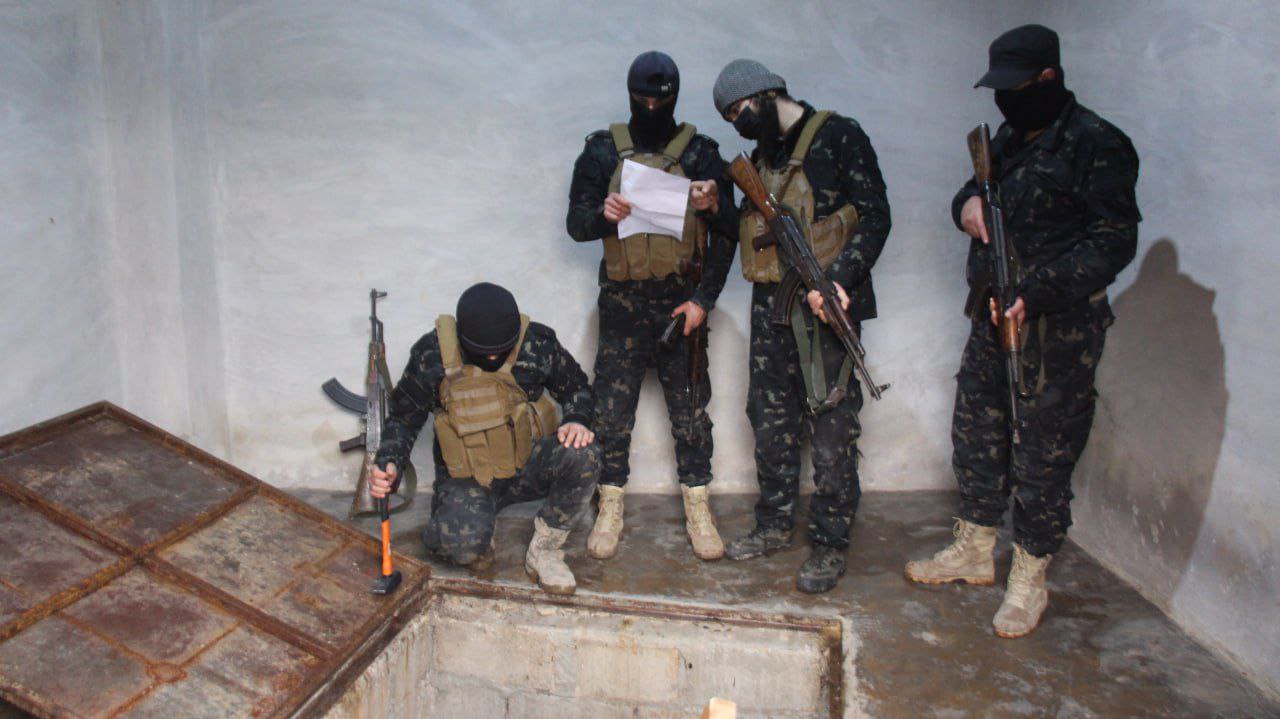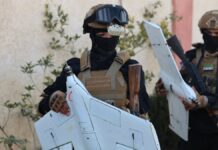
The Syrian government is intensifying efforts to secure its porous borders as it confronts a complex mix of threats, including smuggling networks, Israeli airstrikes, and violent clashes with armed groups. In recent days, security forces have launched operations along Syria’s borders with Turkey and Lebanon, targeting drug traffickers, arms smugglers, and militias that have long exploited the country’s instability.
Crackdown on Smuggling Networks
The Syrian Ministry of Interior announced that the Idlib wing of the Border Security Department (BSD) has destroyed several smuggling tunnels in the Atma border region with Turkey. These tunnels, officials said, were used to facilitate illegal crossings and the transportation of contraband, including weapons and narcotics. Several smugglers were arrested in the operation.
Despite efforts by both Syrian and Turkish authorities to curb illicit crossings, smuggling operations have flourished along the border in recent years. Human trafficking has become particularly rampant. Smugglers have adapted by using sophisticated methods to bypass security measures, including hidden tunnels and rugged mountain routes.
Israeli Airstrikes Target ‘Hezbollah Smuggling Routes’
The situation on the Syrian-Lebanese border remains equally volatile. On Sunday, Israeli warplanes conducted airstrikes on a tunnel in the Bekaa Valley, which the Israeli military claimed was being used by Hezbollah to “smuggle weapons from Syria into Lebanon.” According to Israeli officials, the tunnel had been previously targeted to prevent reconstruction, but Hezbollah had resumed using it for arms transfers.
Israel also struck several Hezbollah positions inside Lebanon, including alleged missile storage sites, amid ongoing tensions despite a ceasefire agreement reached in November 2024. The London-based Syrian Observatory for Human Rights (SOHR) reported that Israeli airstrikes also targeted a “Hamas-linked weapons depot” in the Rif Dimashq Governorate, signaling continued Israeli military operations inside Syrian territory.
Clashes Escalate on the Syrian-Lebanese Border
Meanwhile, the Syrian army has engaged in fierce battles with armed smugglers and Lebanese militias along the border near Qusayr in western Homs. For the third consecutive day, clashes between Syrian security forces and Hezbollah-linked Lebanese nationals involved in drug and arms trafficking have resulted in casualties on both sides.
The violence has been particularly intense in the town of Matraba, where the Syrian army has deployed additional reinforcements to regain control. Reports indicate that the army has successfully extended its presence over key villages, including Akkoum, Balouza, Zeita, Heet, and Bouit.
On the Lebanese side, the town of Jarmash has been hit by missile and drone strikes, with artillery fire also reported in the border villages of Al-Qasr and Hermel. In response, the Lebanese army has deployed reinforcements and warned Hezbollah-linked militants to withdraw from border areas.
Diplomatic Efforts & Military Reinforcements
The escalation prompted a phone call between Lebanese President Joseph Aoun and Syrian President Ahmad al-Sharaa, during which both leaders emphasized the need for coordination to de-escalate tensions. However, shortly after the call, Aoun ordered the Lebanese army to target sites inside Syrian territory in response to cross-border shelling. Lebanese military units were subsequently deployed to engage sources of fire originating from Syria.
Amid the chaos, the Syrian Ministry of Defense has sent military reinforcements to the Qusayr region, focusing on dismantling the Hezbollah-linked terror networks that have turned the Syrian-Lebanese border into a hub for illicit trade. The military’s 103rd Division, along with the BSD, has launched combing operations to neutralize smuggling routes and prevent armed groups from regrouping.
War on Drug Trafficking Intensifies
Syria has also ramped up its efforts to combat the narcotics trade, a major destabilizing factor in the region. The Ministry of Interior recently seized more than seven million Captagon pills at the Nassib border crossing in Daraa, preventing their export to Saudi Arabia. Authorities estimate that over 100 million such pills were set for smuggling, underscoring the scale of the illicit drug trade.
In Quneitra, security forces dismantled a drug network linked to arms trafficking, arresting several individuals, and seized large quantities of narcotics. The Interior Ministry emphasized that Syria is committed to “drying up the sources” of drug production and smuggling, much of which had flourished under the hand of the former Assad regime.
Ongoing Security Challenges
Despite the government’s security measures, Syria’s borders remain highly volatile, with threats emerging on multiple fronts. The Israeli military continues to invade and occupy Syrian territory, while clashes with criminal gangs, smuggling networks, and armed militias along the Lebanese border persist.
As Syria’s new government seeks to assert control over its borders, the coming weeks will be critical in determining whether its security operations can restore stability or if ongoing conflicts will further entrench the country’s fractured borders in lawlessness and violence.








